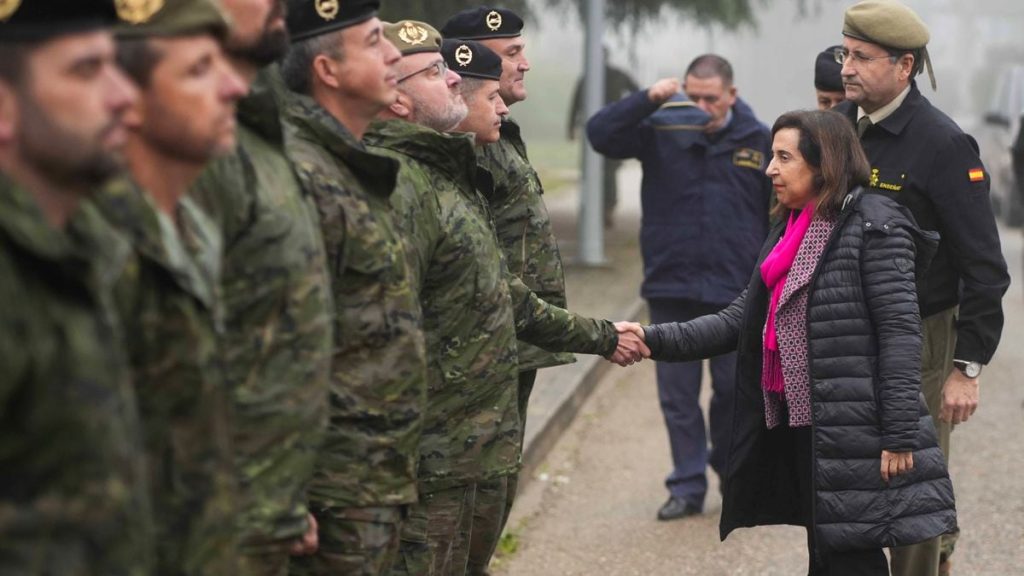The judge of Military Court Number 21, investigating the deaths of two soldiers during a training exercise at an artificial reservoir in Cerro Muriano (Córdoba) on December 21, has found evidence of criminal responsibility in four Army chiefs. Specifically, two colonels, a lieutenant colonel, and a commander allowed the river crossing exercise, in which the soldiers drowned, to take place “without the necessary measures for its correct and safe development.” By acting in this way, they failed to fulfill their obligations, which included “the necessary supervisory task to carry out the river crossing exercise correctly, a supervisory task that had to be carried out both before the exercise and at the time of its execution.” The judge believes that the omission of the four chiefs is one of the possible causes of the soldiers’ deaths and the hypothermia and hospitalizations of other participants in the exercise.
The judge had previously charged Captain Ignacio Zúñiga, Lieutenant Jaime Tato, and Sergeant Gustavo Álvarez, the direct superiors of the two deceased soldiers, with a crime against service efficiency resulting in death (equivalent to negligent homicide), along with Soldier Carlos León and Corporal Miguel Ángel Jiménez Andújar. However, in the new ruling, the judge indirectly points to the colonel in charge of the Queen Regiment Number 2, who appointed Captain Zúñiga as the head of the unit preparing newly incorporated soldiers and had to authorize the training program. He also mentions the lieutenant colonel in charge of the Chief of Staff, who supervised the training plan. The program drafted by Captain Zúñiga was approved without specifying where to cross the lake, its length, whether swimming was required, its depth, or the use of flotation devices, which are crucial for a safe execution.
The judge finds it “striking” that both the General Staff and the Regiment Headquarters claimed there was no specific regulation for the exercise where the soldiers died, despite the existence of written and established rules regarding such water crossings, including safety measures like rescue personnel, safety ropes, individual tethering, and waterproofing. He observes that swimming or floating was required for the exercise as backpacks did not float, and there were no grounds to stand for 100 meters. The judge not only sees criminal responsibility in those who authorized the exercise but also in those who failed to supervise it as required. Therefore, he implicates the current colonel of the regiment that assumed command shortly before the accident and the Chief of Staff at the time of the incident, suggesting they could be responsible for omission or breach of duty crimes in connection with the negligent homicide attributed to their subordinates.
The judge admits that the responsibility of the four chiefs was already apparent from the initial investigation conducted by the Civil Guard after the accident but argues that further inquiry was necessary to solidify these indications without violating the fundamental rights of the accused officers. When the magistrate was supposed to summon the superiors of Captain Zúñiga as witnesses, he proposed transferring the case to a military court as territorial judges like the one in Seville cannot charge officers at or above the rank of commander. Despite objections from the prosecutor, the State attorney, and the defense attorneys of the accused soldiers, the judge decided to refer the case to the military court due to the potential criminal responsibility of the regiment’s top leadership, who cannot be treated as witnesses but as suspects.
In a separate ruling, the judge rejected a request from Captain Zúñiga’s defense counsel to charge the family representative of Soldier Carlos León, lawyer Luis Romero, with disclosing secrets or imposing a disciplinary action for allegedly revealing details of the investigation implicating the higher-ranking officers. The judge stated that there was no evidence of breaching the confidentiality of the case and emphasized that no secrecy order had been issued. Despite the controversy surrounding the case, the investigation highlights the need for accountability and proper supervision in military training exercises to prevent tragic incidents like the one that resulted in the deaths of the two soldiers.


